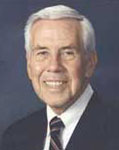Some heavy hitters in the aviation industry are joining ranks to develop and to make more available sustainable biofuels.
This story from Biomass Magazine says the Boeing Co. and UOP LLC, a Honeywell company, are at the heart of this effort:
With support and advice from two environmental groups, the World Wildlife Fund and Natural Resources Defense Council, the Sustainable Aviation Fuel Users Group wants to make commercial aviation the first global transportation sector to voluntarily drive sustainability practices into its fuel supply chain.
The sustainable aviation group’s charter is to enable the commercial use of renewable fuel sources that can reduce greenhouse gas emissions, while lessening commercial aviation’s exposure to oil price volatility and dependence on fossil fuels. The sustainability pledge signed by each of the participants (available on Boeing’s Web site) lists four points as the minimum criteria for sustainable aviation fuels:
1. Jet fuel plant sources should be developed in a manner which is non-competitive with food and where biodiversity impacts are minimized; in addition, the cultivation of those plant sources should not jeopardize drinking water supplies.
2. Total lifecycle greenhouse gas emissions from plant growth, harvesting, processing, and end-use should be significantly reduced compared to those associated with jet fuels from fossil sources.
3. In developing economies, development projects should include provisions or outcomes that improve socio-economic conditions for small-scale farmers who rely on agriculture to feed them and their families, and that do not require the involuntary displacement of local populations.
4. High conservation value areas and native ecosystems should not be cleared and converted for jet fuel plant source development.
The companies in the group, which includes Air France, Air New Zealand, All Nippon Airways, Cargolux, Gulf Air, Japan Airlines, KLM, SAS and Virgin Atlantic Airways, account for about 15 percent of commercial jet fuel use. The pledge commits the Sustainable Aviation Fuel Users Group to work with the Roundtable on Sustainable Biofuels “Version Zero” report, a document outlining the first draft of criteria for sustainable biofuels developed by a diverse group of international stakeholders.
 POET is scheduled to open two more ethanol plants in the next four weeks – both in Ohio. That will bring the total number of POET plants to 26 as of October 24, with a total capacity of 1.54 billion gallons per year.
POET is scheduled to open two more ethanol plants in the next four weeks – both in Ohio. That will bring the total number of POET plants to 26 as of October 24, with a total capacity of 1.54 billion gallons per year.



 The legislation, authored by Senate Foreign Relations Committee Ranking Member Dick Lugar, would promote accelerated development of sustainable biofuels and other renewable energy production, help establish voluntary carbon trading markets, leverage private investment in new energy, promote research, and further integrate the Hemisphere’s energy infrastructure.
The legislation, authored by Senate Foreign Relations Committee Ranking Member Dick Lugar, would promote accelerated development of sustainable biofuels and other renewable energy production, help establish voluntary carbon trading markets, leverage private investment in new energy, promote research, and further integrate the Hemisphere’s energy infrastructure. The first presidential debate between Republican Sen. John McCain and Democratic Sen. Barack Obama just wrapped up, and I have to say I was a little disappointed in how little renewable energy was part of the conversation. I know that it was a debate on foreign policy, but what could be bigger on our foreign policy than reducing our dependence on foreign oil?
The first presidential debate between Republican Sen. John McCain and Democratic Sen. Barack Obama just wrapped up, and I have to say I was a little disappointed in how little renewable energy was part of the conversation. I know that it was a debate on foreign policy, but what could be bigger on our foreign policy than reducing our dependence on foreign oil? Just about half an hour into the presidential debate and ethanol has received its first mention, as Republican Sen. John McCain has declared that he would end current ethanol subsidies, if he’s elected president.
Just about half an hour into the presidential debate and ethanol has received its first mention, as Republican Sen. John McCain has declared that he would end current ethanol subsidies, if he’s elected president. While some motorists are fretting over the possibility of gas shortages… not to mention skyrocketing fuel prices, the folks who operate the school buses in Gaston County, North Carolina are sitting pretty with plenty of fuel at cheap prices… thanks to homemade biodiesel!
While some motorists are fretting over the possibility of gas shortages… not to mention skyrocketing fuel prices, the folks who operate the school buses in Gaston County, North Carolina are sitting pretty with plenty of fuel at cheap prices… thanks to homemade biodiesel! Sessions at the summit will include Sustainability, Low Carbon Fuel Standards, Environment and Economy, Advanced Biofuel Technologies.
Sessions at the summit will include Sustainability, Low Carbon Fuel Standards, Environment and Economy, Advanced Biofuel Technologies. That is one of the findings in a
That is one of the findings in a